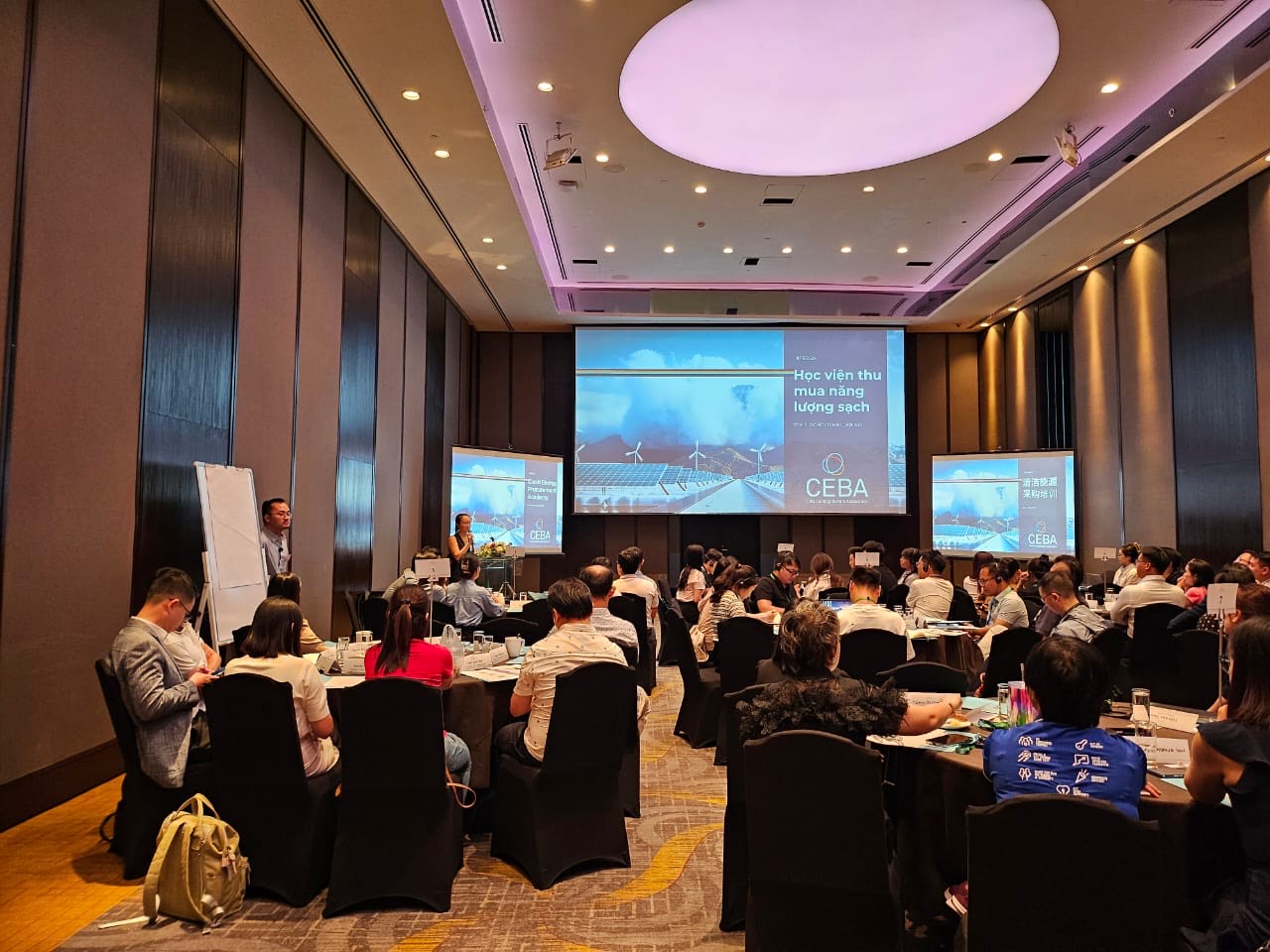CEBA Trainings in Vietnam Provide Energy Procurement and Emissions Reduction Strategies

The Clean Energy Buyers Association (CEBA) recently hosted its inaugural trainings on clean energy procurement in Hanoi and Ho Chi Minh City. These events, on July 30 on August 13, brought together companies from diverse sectors, including packaging, electronics manufacturing, and textiles. The primary goal was to equip participants with cutting-edge knowledge and actionable strategies to reduce electricity-related emissions through clean energy solutions.
The trainings commenced with participants being divided into learning groups, where they were introduced to foundational topics such as the importance of taking climate action, conducting greenhouse gas (GHG) accounting, and setting effective targets. The focus then shifted to Vietnam’s energy structure and policy environment, including a detailed examination of current and potential clean energy procurement mechanisms. Subsequent sessions delved deeper into each mechanism, exploring trends, limitations, and opportunities for implementation in a collaborative setting. The speakers at the training were advisors, developers, representatives from nonprofit climate tech companies, as well as industry experts.
The trainings emphasized actionable discussions and takeaways. After the foundational sessions, participants engaged in group discussions about their own experiences with on-site solutions. Those who had installed rooftop solar panels shared their insights and successes, while those who had not yet implemented such solutions sought advice and brainstormed next steps.
The sessions culminated in a mock direct power purchase agreement (DPPA) negotiation. In this exercise, participants navigated key considerations such as the source of energy, capacity requirements, financial implications, and availability commitments, all within the context of a fictional company with specific monthly energy demands and long-term sustainability goals. “It was like being in a real negotiation with a developer,” noted one participant. “I now have a clearer understanding of the critical questions I need to address and the information I should seek as the mechanism evolves.”
Earlier in July, the Vietnamese government issued a final decree establishing a DPPA framework for large energy customers, a development that had been in the works since 2016. This new framework introduces two additional methods for corporations to procure clean energy: a physical DPPA and a synthetic DPPA. Both methods represent significant advancements in Vietnam’s commitment to sustainability. CEBA is enthusiastic about this opportunity to enhance voluntary procurement options for large energy consumers and their value chain partners, further advancing the fight against climate change, and welcomed the news in a press release.
CEBA remains dedicated to serving as a leading platform for reducing electricity-related emissions in collaboration with our global members. We look forward to continuing our training efforts in Vietnam and expanding into other Asia-Pacific region countries, where supply-chain emissions of major U.S. companies are substantial.
